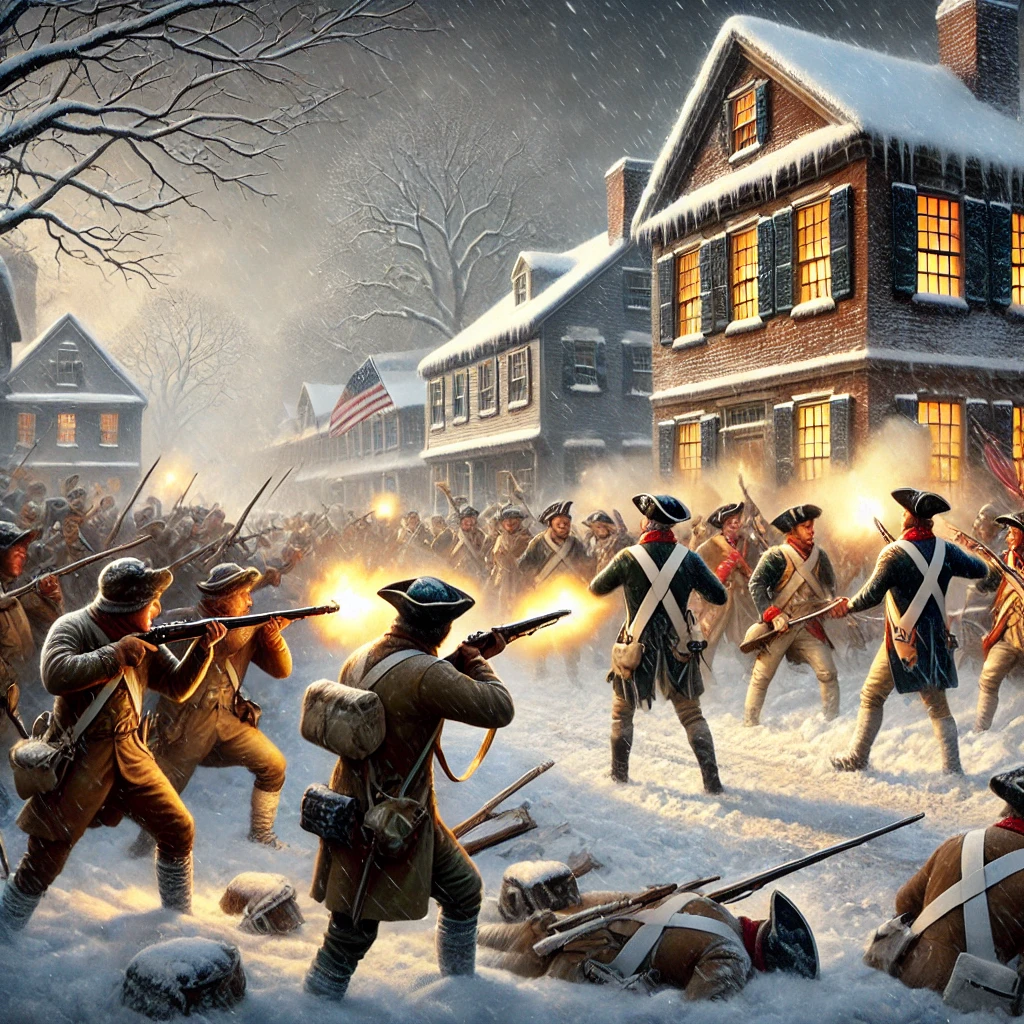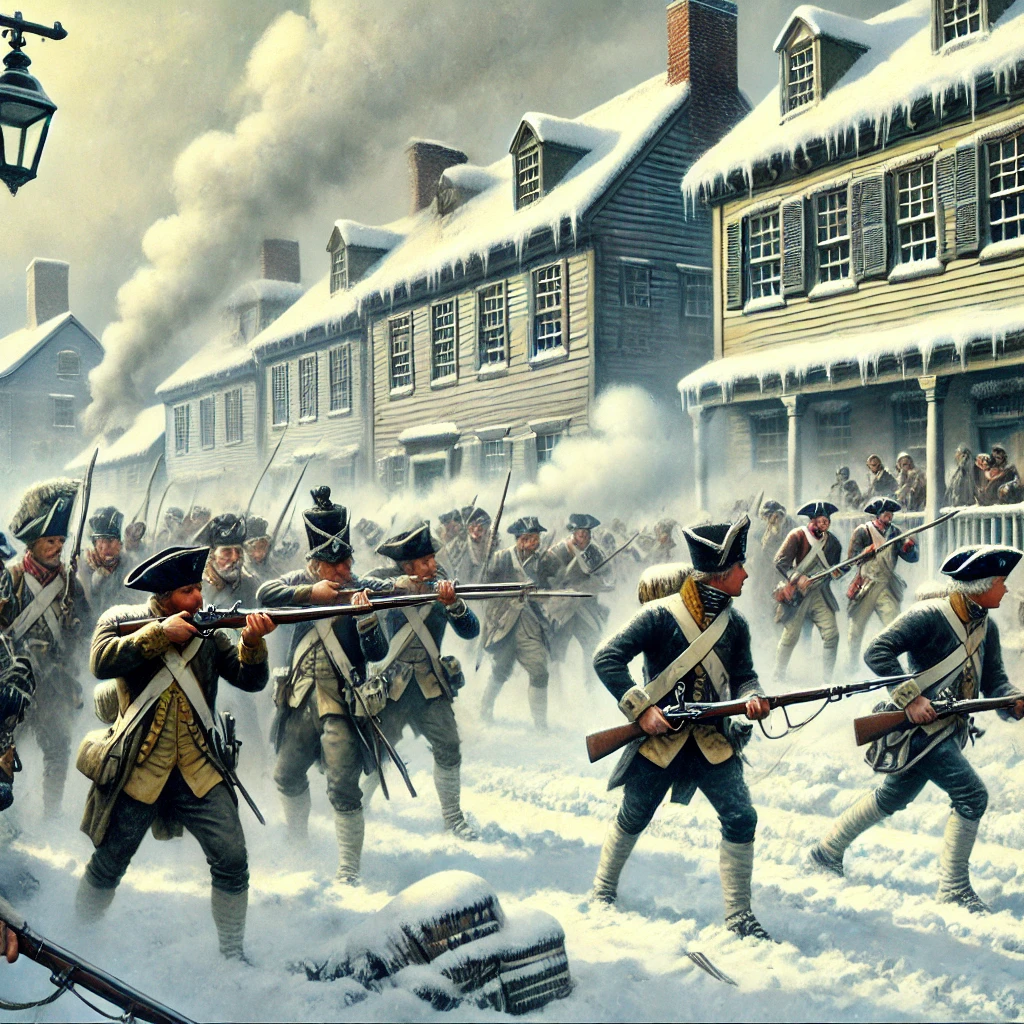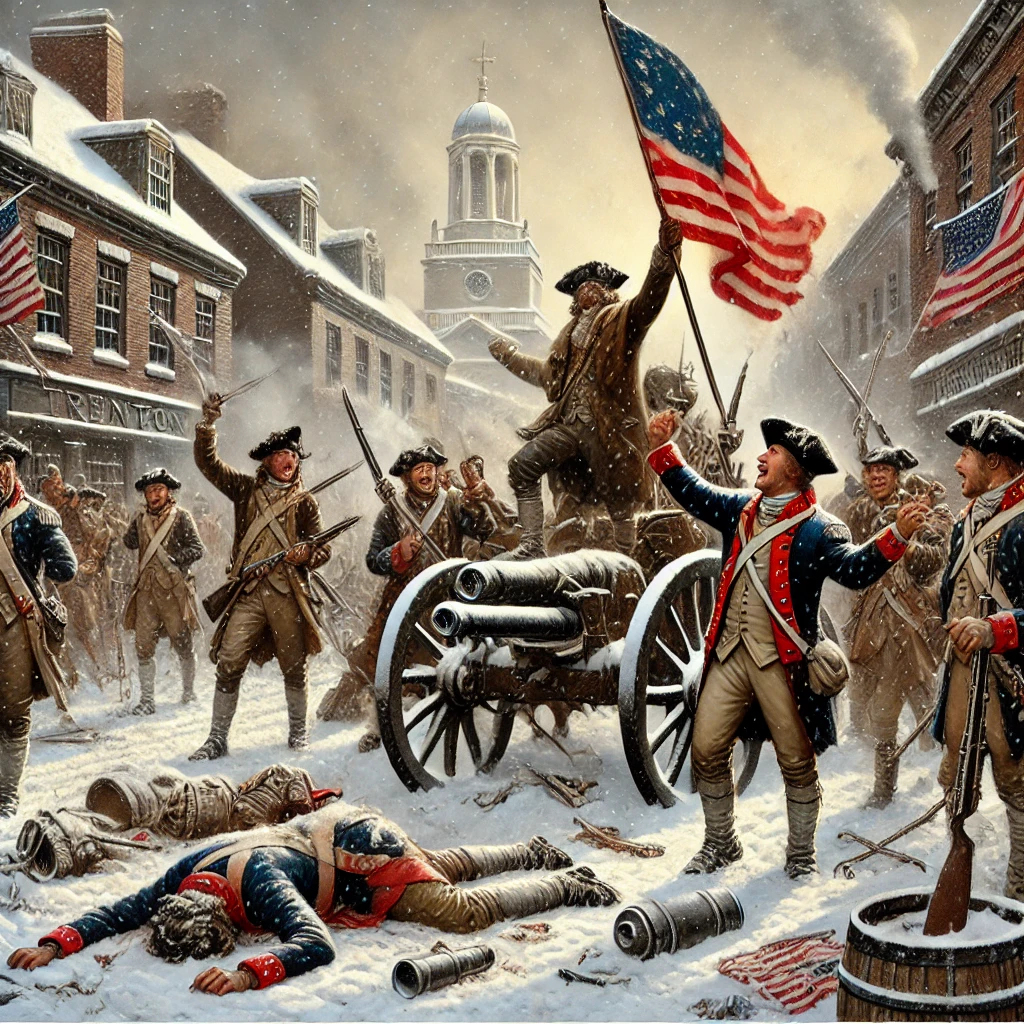Following the daring Christmas night crossing of the Delaware River, the Battle of Trenton continued on December 26th, 1776. General George Washington’s surprise attack against the Hessian forces stationed in Trenton, New Jersey, marked a crucial American victory during the Revolutionary War. This bold maneuver not only showcased Washington’s leadership but also breathed new life into the struggling Continental Army and the American cause for independence.

The Surprise Attack and Its Execution
On the night of December 25th, 1776, General Washington led a force of approximately 2,400 soldiers across the icy and treacherous Delaware River. The crossing was arduous, hampered by freezing conditions, snow, and the threat of hypothermia. Despite these challenges, Washington’s forces pressed on, knowing the element of surprise was vital to their success. The Hessian troops, who had been stationed in Trenton, were caught completely off guard when the Americans launched their attack early the next morning.
The Hessian garrison, commanded by Colonel Johann Rall, was overwhelmed by the speed and precision of Washington’s forces. In less than two hours of fighting, the Americans secured a decisive victory, capturing over 900 Hessian soldiers while suffering minimal casualties. This remarkable feat reinvigorated the morale of Washington’s troops and demonstrated that the Continental Army was capable of defeating a formidable opponent.
A Much-Needed Victory for the Patriots

The American Revolutionary War had not been going well for the Patriots leading up to the Battle of Trenton. Throughout the fall of 1776, the Continental Army had suffered a series of demoralizing defeats, including the loss of New York City. Washington’s troops were cold, hungry, and disheartened, with many soldiers ready to abandon the cause altogether. The victory at Trenton could not have come at a better time.
News of the triumph spread quickly, bolstering the spirits of the American people and encouraging many soldiers to reenlist. Washington’s bold decision to strike during the winter, when armies traditionally avoided combat, caught both the British and their Hessian allies off guard. It proved that the Continental Army still had the resolve and ingenuity to fight for independence against seemingly impossible odds.
The Lasting Impact on the American Revolution
The Battle of Trenton’s significance extends far beyond its immediate outcome. The victory not only restored faith in the leadership of George Washington but also sent a clear message to both allies and enemies that the American cause was far from defeated. It also set the stage for further successes, such as the Battle of Princeton just days later, which continued to weaken British control in New Jersey.
Moreover, the victory at Trenton played a critical role in securing foreign support for the American Revolution. As news of Washington’s daring success spread across the Atlantic, it helped convince nations like France that the Continental Army was a worthy and capable ally. This support would prove instrumental in the years to come, as foreign aid and military alliances tipped the scales in favor of the Americans.
A Symbol of Courage and Resolve

Today, the Battle of Trenton stands as a symbol of courage, perseverance, and the power of leadership in the face of adversity. Washington’s decision to take bold action during a time of despair turned the tide of the war and inspired generations of Americans to fight for freedom and justice. Each year, the events of December 26th, 1776, are remembered as a turning point in American history—a day when hope was rekindled and the fight for independence surged forward with renewed vigor.
The Battle of Trenton reminds us that even in our darkest hours, determination and unity can lead to triumph. It is a powerful lesson from history that continues to resonate today, embodying the spirit of resilience that defines the American story.
